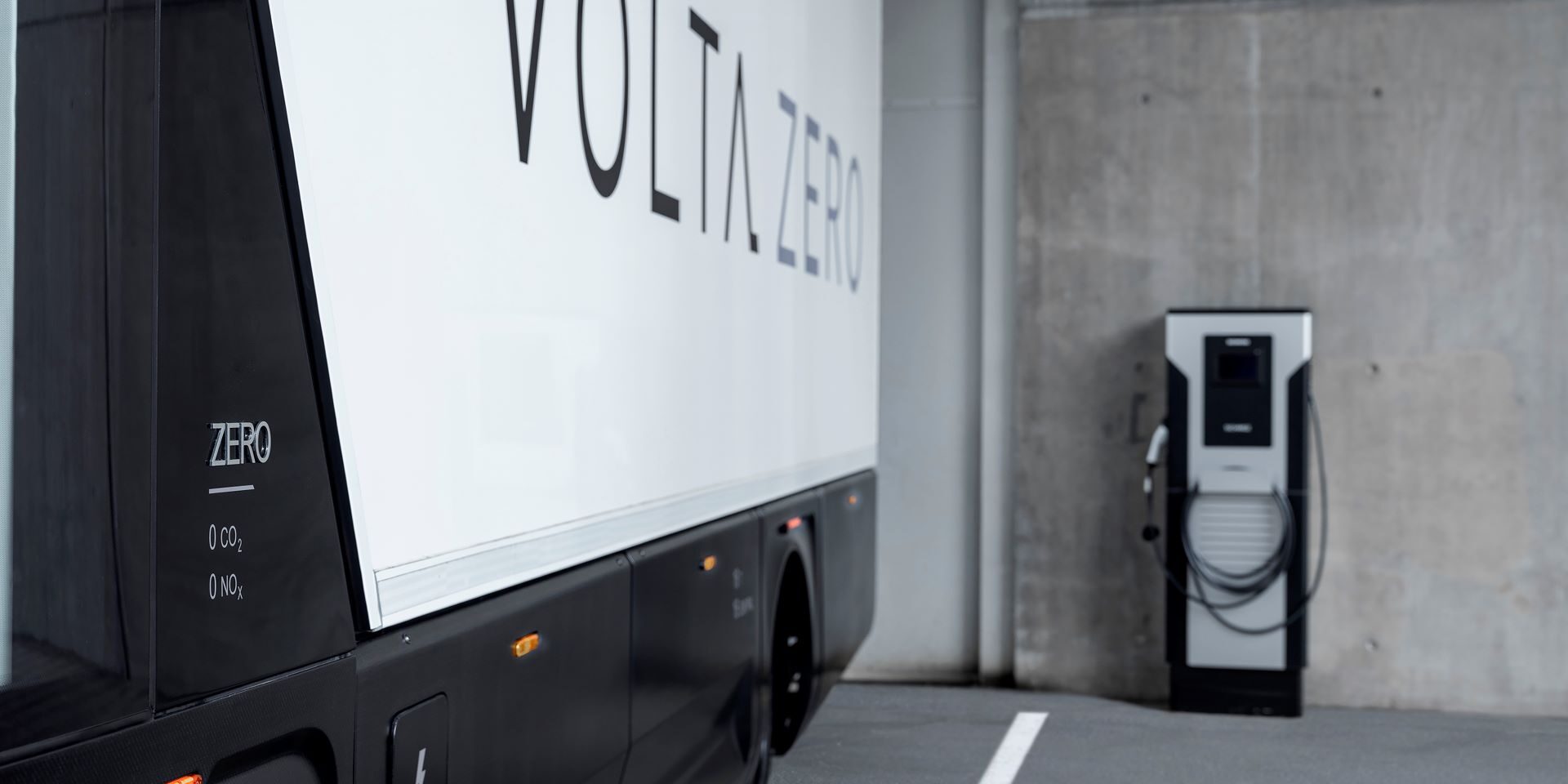In the latest Thought Leadership feature, we address many of the questions and common misconceptions that our customers ask our Business Development teams during discussions about the running of full-electric commercial vehicles.
Is it true that fast charging ruins the battery?
It is true that fast charging can put more strain on the battery than slower charging. Larger batteries can be charged at a higher rate than small batteries without undue strain, so for trucks, the problem is less pronounced than for cars. This can be managed using correctly specified thermal management. At Volta Trucks, we are taking a conservative approach with the allowed rate through the implementation of a high-capacity thermal management system to cope with it. With this approach, our predictions of lifecycle durability take account of the effects of fast charging, so it won’t be an issue for customers wanting to fast-charge a Volta Zero.
Is it true that today’s battery technology will be obsolete in the next couple of years due to innovation?
Battery technology has been developing at pace in recent times, with some Lithium-ion technologies already reaching the limits of their potential (for example Li-Fe-P04). That said, other battery technologies are at a much less mature point, with much higher potential. At Volta Trucks, we have selected a technology that is fully production-ready but new to the market (NCMA) to place ourselves at the cutting-edge of technology without taking undue risk on unproven chemistries. We will continue to monitor the marketplace and will update our technology when it becomes mature enough to be reliable for a truck application. However, the development cycles are such that even the most promising new technologies will take several years to come to mass market. It is also important to note that these new technologies, whenever they arrive, won’t make the existing technology obsolete, just that there will be newer, and probably more expensive options, in the marketplace.
Is it true that hydrogen will overtake EV technology?
We shouldn’t forget that unless you are burning hydrogen in an internal combustion engine, hydrogen is an EV technology! A fuel cell is used to convert hydrogen into electricity. On this basis, it’s an EV, and so much of the technology is common; it’s simply a different way of storing and transferring energy. There will be a range of storage options in the future, depending on the availability of infrastructure and the specific use case. I believe this will include hydrogen as well as battery electric vehicles. For our application of last-mile and short-haul commercial vehicles, batteries are well suited as we have manageable battery sizes thanks to the limited range these types of vehicles travel. For longer-haul vehicles, where a longer range is needed or a very rapid recharge is required, hydrogen storage has advantages. The key point is that today, the electric charging infrastructure is ready and mature – the same cannot be said for the hydrogen infrastructure at this point.
Public infrastructure isn’t ready for electric trucks.
This may be the case, but it’s not an issue for us as our applications are focused on a charge-at-base model. As part of our Truck as a Service offer, we work with customers to ensure that they can obtain sufficient power from the grid, into their depots, and into the chargers for the trucks. That said, for the wider adoption of electric vehicles, this is a society-wide problem that needs to be addressed at government and regulatory levels.
There isn’t enough electricity available for all the EVs that are coming onto the roads
To be provocative, that’s like saying there weren’t enough oil wells when Henry Ford started making Model Ts! The market demand will stimulate investment, hopefully into renewable sources so that the electricity needed can be delivered in a sustainable way. For our industrial-type applications, we expect our customers to be able to access high-capacity supply, and through our Truck as a Service offer, we will assist them in specifying the right charging equipment.
It is impossible to guarantee battery life cycle.
It’s impossible to predict battery life accurately without knowing exactly how the vehicle is going to be used. It’s not impossible to guarantee it; this is a financial issue rather than a technical one. The issues are who takes the risk, and how you decide if the guarantee has turned into a payable claim vs. wear and tear. If you can resolve that, you can guarantee it. This is the case for a diesel engine as well. Same paradigm, different technology.
200 km is too short of a range to support regional distribution.
The range of the Volta Zero is optimised around an urban distribution model, typically being wholesale deliveries from hubs on the outskirts of a city to local points within that city. Our customers are telling us that up to 200 km is more than sufficient for those needs. If a customer is looking for a full-electric vehicle to deliver bulk transport between cities, or across continents, they may well be right, but that is not our market.
EV technology is not ready yet, it’s worth waiting a couple of years until the ranges have increased.
The technology is fully mature and is well-suited to the application we have targeted. If longer range is an absolute requirement, then our product is not the right one for that particular use case. Waiting for something else is always an option, but not in certain geographies where governments are implementing diesel bans as soon as the end of 2023. In addition, the climate crisis is a reality today, and every mile undertaken by a diesel vehicle is a contributor to climate change. Forward-looking businesses are adapting their operating models to the characteristics of the technology. Trying to fit a diesel-based operational model into an electric vehicle world is a challenge, we know, but if you are motivated enough to adapt, it can bring big benefits.

